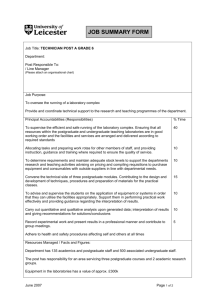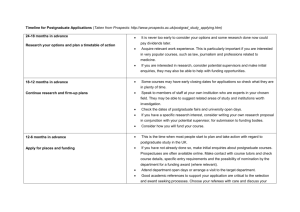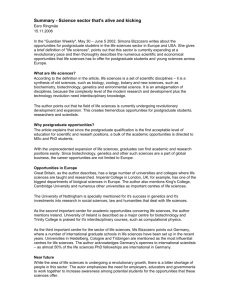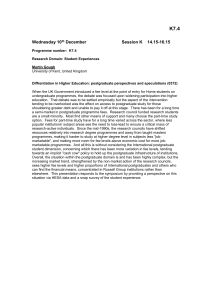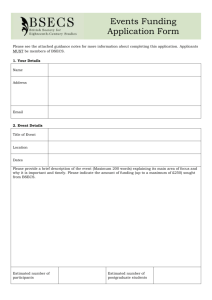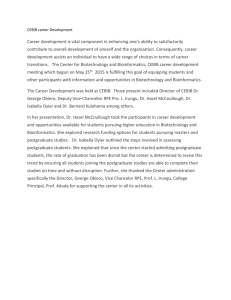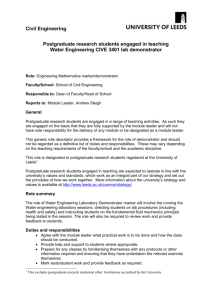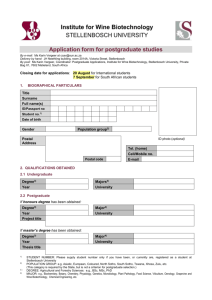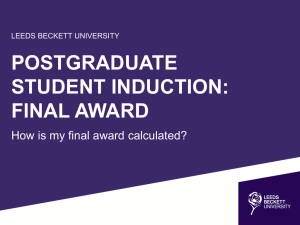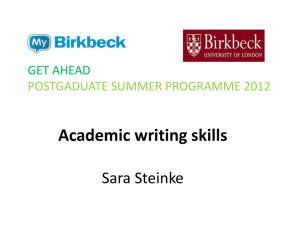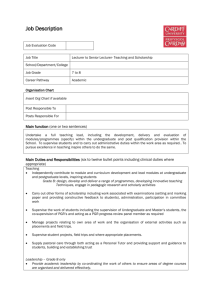PTA generic role description
advertisement
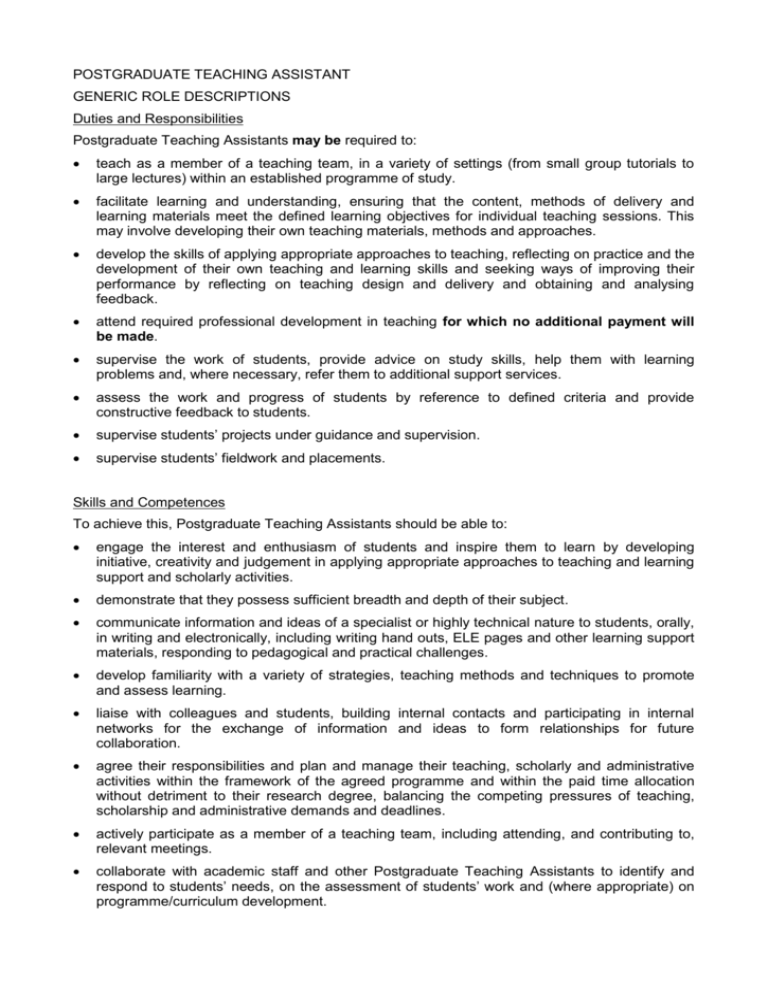
POSTGRADUATE TEACHING ASSISTANT GENERIC ROLE DESCRIPTIONS Duties and Responsibilities Postgraduate Teaching Assistants may be required to: teach as a member of a teaching team, in a variety of settings (from small group tutorials to large lectures) within an established programme of study. facilitate learning and understanding, ensuring that the content, methods of delivery and learning materials meet the defined learning objectives for individual teaching sessions. This may involve developing their own teaching materials, methods and approaches. develop the skills of applying appropriate approaches to teaching, reflecting on practice and the development of their own teaching and learning skills and seeking ways of improving their performance by reflecting on teaching design and delivery and obtaining and analysing feedback. attend required professional development in teaching for which no additional payment will be made. supervise the work of students, provide advice on study skills, help them with learning problems and, where necessary, refer them to additional support services. assess the work and progress of students by reference to defined criteria and provide constructive feedback to students. supervise students’ projects under guidance and supervision. supervise students’ fieldwork and placements. Skills and Competences To achieve this, Postgraduate Teaching Assistants should be able to: engage the interest and enthusiasm of students and inspire them to learn by developing initiative, creativity and judgement in applying appropriate approaches to teaching and learning support and scholarly activities. demonstrate that they possess sufficient breadth and depth of their subject. communicate information and ideas of a specialist or highly technical nature to students, orally, in writing and electronically, including writing hand outs, ELE pages and other learning support materials, responding to pedagogical and practical challenges. develop familiarity with a variety of strategies, teaching methods and techniques to promote and assess learning. liaise with colleagues and students, building internal contacts and participating in internal networks for the exchange of information and ideas to form relationships for future collaboration. agree their responsibilities and plan and manage their teaching, scholarly and administrative activities within the framework of the agreed programme and within the paid time allocation without detriment to their research degree, balancing the competing pressures of teaching, scholarship and administrative demands and deadlines. actively participate as a member of a teaching team, including attending, and contributing to, relevant meetings. collaborate with academic staff and other Postgraduate Teaching Assistants to identify and respond to students’ needs, on the assessment of students’ work and (where appropriate) on programme/curriculum development. show consideration to others, using listening, interpersonal and pastoral care skills to deal with sensitive issues concerning students and provide support, while recognising when they should refer students to services providing further help. appreciate the needs of individual students and their circumstances, including understanding equality and diversity issues as they may impact on academic content and issues relating to student need. be aware of the risks in the work environment and their potential impact on their own work and that of others and, in relevant circumstances (eg laboratories) take appropriate responsibility for the health and safety of others and reducing hazards. participate in assessment of their teaching, engaging positively with feedback. Additional for PTA reps Postgraduate Teaching Assistant Representative In addition to the Duties and Responsibilities already outlined, Postgraduate Teaching Assistant Representatives may be required to: attend a training or support session which explains the postgraduate teaching assistant representative role, signposting them to relevant contacts and ensuring that they are familiar with their responsibilities. make themselves available to all PTAs within their discipline, as a point of contact to discuss teaching issues. coordinate PTA concerns within the discipline and feed them through to the relevant staff member. represent PTAs at relevant departmental SSLCs and PGRLFs. provide feedback to the University or Students’ Guild when a relevant teaching issue is being discussed. attend any departmental PTA training to introduce themselves and offer students the benefits of their experience.
